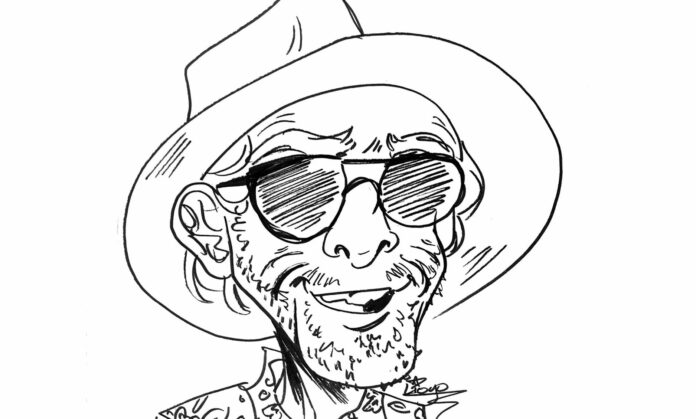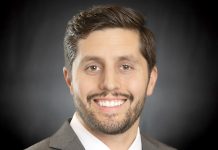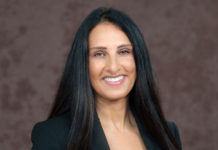Election Day 2024 is in 19 days and I have already marked my ballot, sealed it in the postage paid envelope and have it setting here atop my little work table. Today, I will deposit it in the ballot box located at the south end of the city hall building. Because it matters very little to very few what generated my choices, we’ll just bypass all but Measure T; let me tell you why.
I ride a bicycle as main transportation so the surface and safety of the streets is of concern to me. Now while Measure T does not address such situations as four-way stops (where we riders seem to perplex drivers), it does make a way for the city to improve the streets; and many are in real need of upgrades. Ask any bicycle rider, or at least those of us who don’t use the sidewalks for navigation, and they will tell you about many rough sections of roadway in King City that are best avoided if possible.
It is not always asphalt deterioration with cracks and holes of all sizes that come with normal vehicle traffic, which in some streets is severe enough to rattle teeth and shake bones, but some problems result from intentional purposes. Whenever any utility upgrades or additions take place in streets, usually water or electric, the hole required to access whatever the project must then be filled in with asphalt, workers leave just enough asphalt above street level knowing traffic and natural settling will occur and level the street.
But when settling does not happen you have an unauthorized speed bump or with too much sinking you have what amounts to a nicely shaped pot hole. And while these unlevel repair jobs are found all over the city, they are not as hard to navigate as when whole roadways have settled and the expanded asphalt pooches up against cement curbs or sidewalks and creates ridges (I doubt pooches up is a viable term, but you know what I mean). These ridges can be three to four inches high and many feet in length and can easily topple a rider if not negotiated carefully.
And street surfaces are not the only matters addressed in Measure T; there are our city parks and law enforcement. I really don’t have much association with city parks and recreation, but my experience in most towns where I have lived is that parks and recreation areas are always in need of regular maintenance and upkeep for both the entertainment and safety of users. And when it comes to safety, it is always desirable to have a full contingent of police officers, so monies gleaned from the passage of Measure T would insure that happens as well as added equipment. Both will benefit from the expected revenue of the additional one-half cent per dollar spent in town; an amount which raises King City’s sales tax rate to 9.25%, up from its present 8.75%. This would put us on par with the other Valley towns, where Greenfield’s rate is 9.25%, Soledad is at 9.25% and 8.75% up in Gonzales.
If there is any argument against the added tax increase it is that shoppers from our area will help pay for facilities they do not use on a normal basis; this would include all those living in the high school district like San Lucas, San Ardo, Lockwood and Jolon, Bitterwater, Pine Canyon and so on. Also, tourists and motorists stopping in town would pay for something they will never use again, like the roads they drive or the park where they picnic or the wages of the officers they see patrolling the city. To avoid that situation would have residents continue to pay the 8.75% and non-residents now pay 9.25%; but that would be impossible to keep track of, so it is a one-size-fits-all increase.
Now, if your argument as residents is this is just another “tax and spend” measure be assured, and, if you are able, comforted, knowing you are not the only ones adding to city coffers. So, if you wanna better village, you gotta pay the piper; but it’s only a half a penny a tune and that is a good deal. And that is why I voted for Measure T.
***
Regarding voting, how do young people untrained in critical thinking determine their vote? In 1964, a Canadian communications theorist Marshall McLuhan offered this: “The media is the message, the way information is conveyed through a medium is more significant than the content of the message itself.” Actor Denzel Washington recently told a journalist that those who do not read newspapers are uninformed and those who do read newspapers are misinformed; a statement falling in line with Mr. McLuhan’s theory. Mr. Washington went on to say that being first to break a story rated above whether the information was true or not, and the more that is practiced the better media gets at slinging BS.
In today’s political climate, one must navigate the media in knee-high rubber boots and still the truth may be elusive. I fear for my grandchildren’s generation if they are not early instructed in how to decipher the vast, and instant, information flow which comes their way every time they look or hear a media news source spewing “facts.” I suspect were I to show video coverage from a score of media sources regarding November 2020 to a middle school student, they would have trouble answering “Was the 2020 presidential election accurate?”
I don’t know how many local 18-year-olds, or anyone else, who voting for the first time, can know any candidates positions on the importance issues facing our nation without knowing what media outlet has the best track record of accuracy and veracity? When even the once venerated televised one-on-one debates are accused of bias via selective questioning, where does the voter turn for guidance of conscience?
Take care. Peace.














